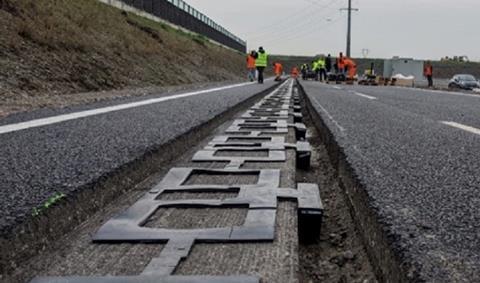
Coventry University is contributing to new technology to enable EVs to charge as they drive on power-enabled roads.
The technology is one of six innovations proposed by the Key Cities Innovation Network (KCIN) in ‘Civic Partners in Net Zero’, a collection of peer-reviewed studies detailing innovative ways in which universities are working with their local communities to achieve net zero targets.
Coventry’s innovation focuses on the city’s longstanding expertise in automotive. Dynacov – short for ‘dynamic charging of vehicles’ – uses dynamic wireless transfer technology to establish an automatic connection between subscribing vehicles and metal coils fitted below the road surface to recharge the vehicles’ batteries as they pass over – and then bill them for the energy consumed.
Funded by National Grid Electricity Distribution and building on dynamic wireless transfer technology prototyped by ElectReon, Dynacov is a feasibility project by Coventry University and Coventry City Council, which is leading the project, in collaboration with Cenex. It is focused on a section of Kenilworth Road at its junction with the A45.
Kevin Vincent, director of Coventry University’s Centre for Connected and Autonomous Automotive Research, said: “Dynacov demonstrates the benefits of universities and local authorities sharing a common vision for the sustainable future of our cities and then having the agility to work in a collaborative and timely manner with industry stakeholders to effect positive change.
Councillor Jim O’Boyle, Coventry City Council’s cabinet member for jobs, regeneration and climate change, added: “It is great to be collaborating with Coventry University and Cenex to show how roads can be used to charge vehicles as they pass by and solutions like this will enable the transition to EVs to happen more quickly.”
































